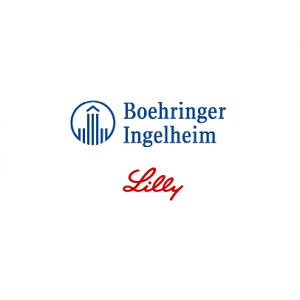 The US Food And Drug Administration (FDA) has recently approved Glyxambi® (empagliflozin/linagliptin) tablets by Boehringer Ingelheim Pharmaceuticals and Eli Lilly and Company as a supplement to exercise and diet to improve glycemic control in adult individuals suffering from type 2 diabetes, when both linagliptin and empagliflozin are appropriate treatments.
The US Food And Drug Administration (FDA) has recently approved Glyxambi® (empagliflozin/linagliptin) tablets by Boehringer Ingelheim Pharmaceuticals and Eli Lilly and Company as a supplement to exercise and diet to improve glycemic control in adult individuals suffering from type 2 diabetes, when both linagliptin and empagliflozin are appropriate treatments.
Glyxambi is not recommended for patients with type 1 diabetes or to address diabetic ketoacidosis. It has not been studied in patients with records of pancreatitis and it has not been established whether its usage increases the risk of developing pancreatitis.
A recent press release notes that Glyxambi is the only diabetes treatment in the United States to combine the dual mechanisms of action of a dipeptidyl peptidase-4 (DPP-4) inhibitor and a sodium glucose co-transporter-2 (SGLT2) inhibitor into a once-daily tablet. The drug combines 5 mg of linagliptin with 10 mg or 25 mg of empagliflozin. DPP-4 inhibitors function by increasing the hormones that induce the pancreas to produce more insulin and the liver to produce less glucose. The SGLT2 inhibitors remove the glucose through urine by blocking the re-absorption of blood glucose in the kidney.
Paul Fonteyne, CEO and president of Boehringer Ingelheim Pharmaceuticals said in a press release: “Today’s medical community recognizes the need to treat type 2 diabetes from multiple fronts to help patients improve glycemic control. With Glyxambi , the dual inhibition of DPP-4 and SGLT2 — two proven targets in the treatment of type 2 diabetes — now provides U.S. physicians and patients with an option to simultaneously address multiple pathways to improve glycemic control. For patients uncontrolled on metformin, phase III trial results showed Glyxambi provided significantly greater reductions in blood glucose levels compared with either empagliflozin or linagliptin alone.”
Glyxambi should not be taken by those who have severe renal impairment, dialysis or end-stage renal disease, and by those with hypersensitivity to linagliptin, angioedema, anaphylaxis, urticaria, exfoliative skin issues, bronchial hyperreactivity and hypersensitivity to empagliflozin.
“Half of people with type 2 diabetes do not achieve recommended blood sugar control, making new treatment options more important than ever. The approval of Glyxambi gives U.S. physicians and patients a first-in-class prescription medicine to help manage this condition. The approval is also a testament to our alliance’s commitment to adults living with type 2 diabetes,” concluded Mike Mason, Lilly Diabetes’ representative.


